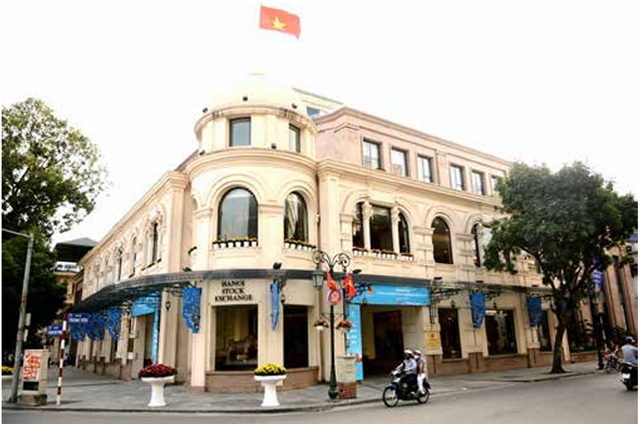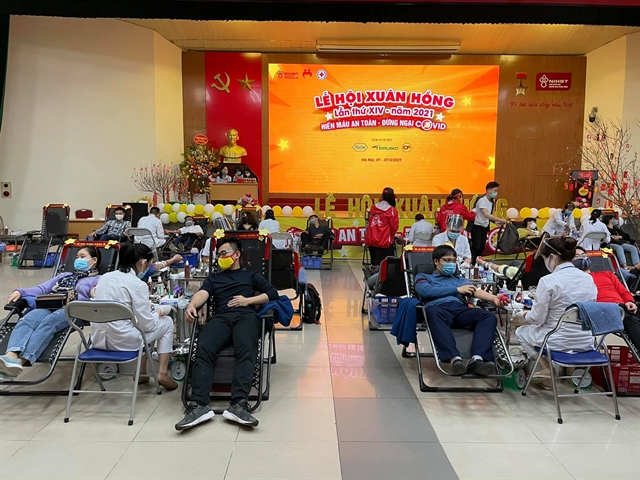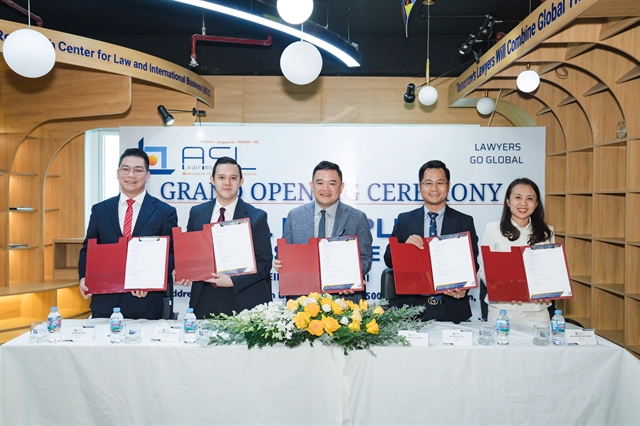 Economy
Economy

In addition to traditional distribution channels, through e-commerce initiatives, local products, especially One Commune One Product (OCOP), gain faster and more effective exposure to consumers nationwide compared to traditional channels, which is particularly beneficial for newly established firms.

|
| Nguyễn Minh Tiến, Director of the Agricultural Trade Promotion Centre. |
In addition to traditional distribution channels, local products, especially One Commune One Product (OCOP), gain faster and more effective exposure to consumers nationwide through e-commerce initiatives, which is particularly beneficial for newly established firms.
Nguyễn Minh Tiến, Director of the Agricultural Trade Promotion Centre, the Ministry of Agriculture and Rural Development, speaks to Việt Nam News reporter Vũ Hoa about e-commerce platforms' potential to improve market access for OCOP products.
Do you think that integrating digital technology into the OCOP programme can improve production efficiency and market access, particularly in foreign markets?
E-commerce is rapidly growing in the current era, both in the Vietnamese market and internationally. In 2023 alone, e-commerce posted a growth rate of 25 per cent. Given this trend, it is essential to promote agricultural and OCOP products on e-commerce platforms. However, we see that the capacity of producers of OCOP products remains quite limited in keeping up with this trend. Given these circumstances, the Agricultural Trade Promotion Centre under the Ministry of Agriculture and Rural Development entered into a co-operation programme with Tiktok Vietnam in February 2023. Although it has not been a significant amount of time, we have already witnessed several remarkable outcomes.
The first point is the noticeable spread of OCOP products on e-commerce platforms. In the past, only a few OCOP products were advertised and promoted, but now the majority of the 12,000 OCOP products have been showcased on social networking platforms, including Tiktok Vietnam. More than 800 live stream sessions of the OCOP Market event are held every Saturday in 38 localities with a total revenue of more than VNĐ100 billion (US$4 million), attracting 1.4 billion viewers.
This impressive number demonstrates that over the past year, sellers have gained substantial knowledge about OCOP products. Conversely, by facilitating the digital transformation, some producers and traders of OCOP products have been able to establish their own sales channels. They can now visualise the process of connecting and forming chains on e-commerce platforms. This shows the significant achievements in the past year, enabling us to further promote the digital transformation of OCOP and Vietnamese agricultural products. This not only generates economic development but also imparts cultural and traditional values to domestic consumers, creating a positive ripple effect.
What measures are necessary to ensure that businesses in the OCOP programme can effectively access and utilise digital technology?
The primary challenge we encounter is the capacity of producers and traders of OCOP products. These businesses are small-scale enterprises with limited resources, and they often lack proficiency in livestreaming and e-commerce skills. Additionally, their channels for reaching customers are quite restricted, and the task of establishing, developing and sustaining these channels is far from simple. Therefore, our initial focus for 2024 is on introductions, promotions, and, most importantly, organising training sessions. Our intention is to cultivate a new generation of OCOP entrepreneurs who possess the necessary skills and are genuinely dedicated to establishing successful digital channels. We will provide support throughout the entire process, from registration and facilitating transactions, to maintaining and ensuring a secure impact. Capacity-building is, therefore, our foremost concern.
We will provide assistance with logistics because we understand that during livestream sessions, there can be a surge in orders, reaching as high as 2,000-3,000 orders. Therefore, even packaging becomes a crucial and challenging issue. For instance, platforms like TikTok require that each livestream session's orders be packaged within a day. This poses a significant hurdle for OCOP producers if they haven't made preparations regarding logistics, packaging and labelling. These are areas that need standardisation and professionalisation. In fact, for OCOP producers that establish large-scale channels, we must implement an organised packaging system and establish a support network connected to transportation services in a systematic manner.
The final issue is to provide support in terms of capital. When selling products on social networks, it is common to operate on a 15-day deferred payment system. During this period, businesses often face a shortage of capital since they do not receive immediate payment but need to wait until customers are satisfied with the product's quality. It is crucial to offer them credit support so they can maintain their supply while awaiting payment. Additionally, we need to assist them in adjusting packaging and labelling to align with e-commerce platform requirements. Furthermore, other forms of support are necessary, such as establishing a system to promptly address customer feedback. We have identified several challenges related to skills, production efficiency and packaging. Our goal for 2024 is to provide comprehensive additional support in these areas.
Is it necessary for the centre to collaborate with businesses to effectively implement these initiatives?
In the process of assisting sellers in promoting OCOP products, we have recognised various challenges that require resolution.
Regarding logistics, typically, the number of orders for OCOP products do not warrant a single trip. The issue is how to co-ordinate with logistics firms to ensure the most cost-effective shipping for buyers. Currently, we are collaborating with Viettel Post and other units to address this concern.
We also offer credit support to ensure that sellers can continue providing goods while awaiting delayed payments.
We need to promptly establish backup support teams involving Agritrade, e-commerce platforms, and other businesses. This collaboration aims to swiftly address any issues arising from payment procedures, customer feedback regarding product quality, delayed deliveries, or other related concerns. We aspire to expand co-operation between Agritrade and TikTok beyond these two entities, to encompass banks, logistics units, transportation support units, and other relevant agencies. Only through such expanded collaboration can we contribute to enhancing the convenience and customer support of e-commerce through social networking platforms, benefiting producers and sellers of OCOP products. VNS




